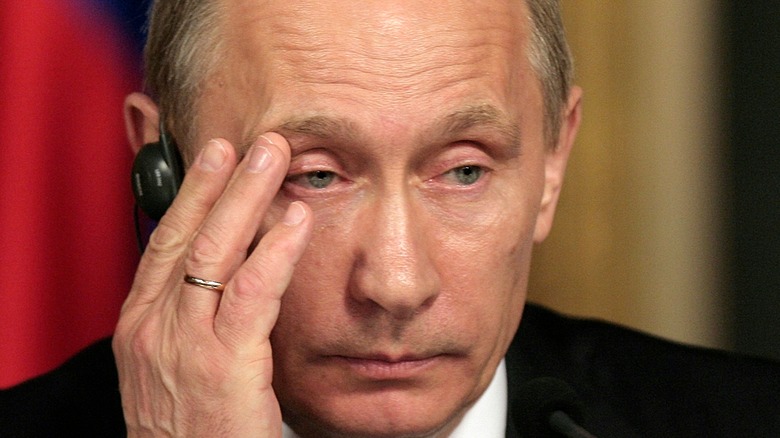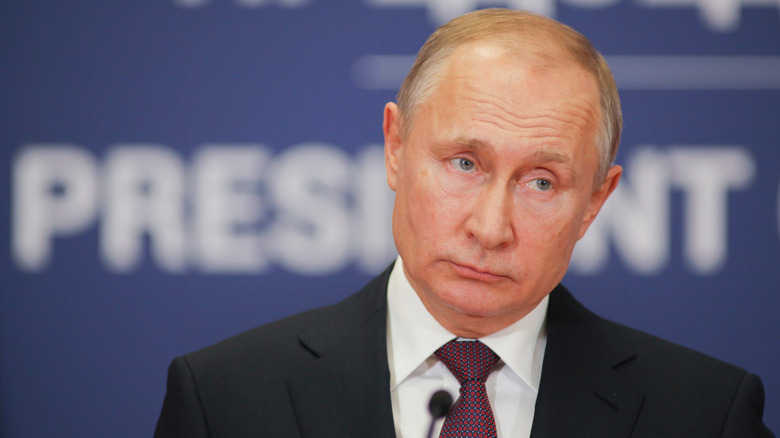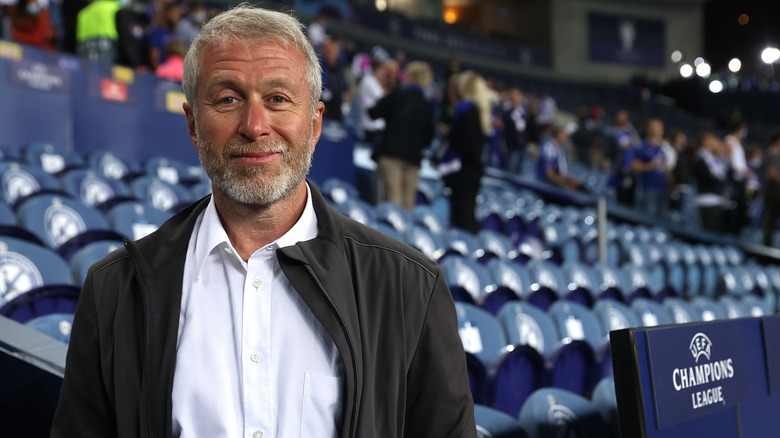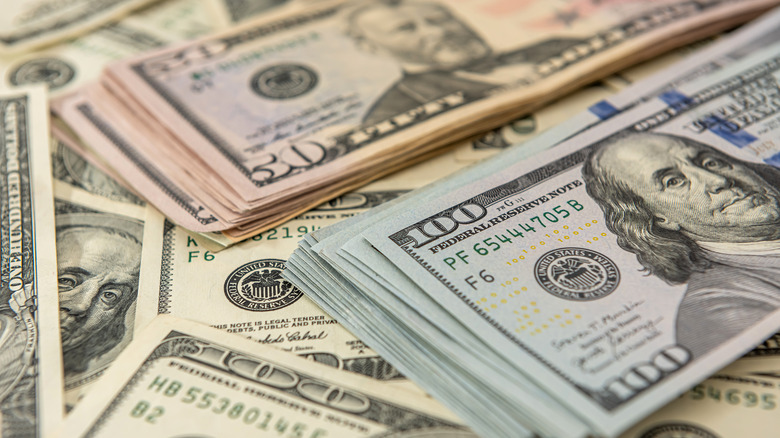Why Most Of Russia's Oligarchs Aren't Speaking Out Against Vladimir Putin
When Vladimir Putin decided to invade Ukraine it was met with harsh condemnation from most of the world. Many countries — the United States included — unloaded a slate of sanctions designed to cripple Russia's economy and isolate them from the rest of the world.
Some of the figures most directly affected by these sanctions are Russian oligarchs – businesspeople who amassed obscene fortunes, often benefitting from Putin's administration and policies, and who therefore have some political pull.
According to CNN, oligarchs are the ones taking some of the biggest hits due to the sanctions, including having their assets (from yachts to private jets) seized by other nations, so it's somewhat surprising that more of them haven't spoken out against the Russian president to put end to those sanctions.
This is precisely what the sanctions are designed to do: create a financial strain on oligarchs which in turn could initiate internal dissent in the Russian government. For some reason, with a few exceptions, many oligarchs have kept their lips sealed.
How did Russian oligarchs come to be?
First, it's important to know what exactly an oligarchy is. According to Merriam-Webster, an oligarchy is "a government in which a small group exercises control especially for corrupt and selfish purposes." Of course, this means that an oligarch is one of the people in that small group controlling the government.
In Russia's case, its crop of oligarchs was a product of the Soviet Union's collapse. The new Russian government transitioned from an economic system where the government controlled just about everything to a market economy. According to NPR, this all happened really fast, something that experts advised against at the time. In fact, the transition was so fast that then-President Boris Yeltsin's administration referred to it as shock therapy.
Oligarchs exploited a voucher system put in place in the early period of Russia's privatization. A few years later when things weren't exactly panning out for the new Russian government, oligarchs were asked to bail out the government, which led to them acquiring some of the nation's most important industries.
Putin's ties to the oligarchs
According to NPR, by the time Vladimir Putin, an ex-KGB agent, ascended to the presidency, oligarchs had cemented their place in the Russian government using methods that were often less than legal. The Putin-oligarch relationship has been pretty much the same for over two decades. Simply put, it's a "you scratch my back, I'll scratch yours," symbiotic relationship in which Putin promised the oligarchs even bigger fortunes, as long as they supported his political endeavors.
This close relationship between the two parties is why governments around the world have seen pressuring oligarchs as a way of indirectly getting to Putin. According to CNN, sanctions have had a great effect on oligarchs and made both their personal and professional lives much more difficult. This has left people wondering why more of them haven't been vocal in their dissent toward Putin, if it means helping themselves.
How sanctions have affected oligarchs
According to CNN, the focus of most of the sanctions placed on both Putin and Russian oligarchs was aimed at seizing oligarchs' assets and preventing them from freely moving around the globe.
Many, like Roman Abramovich, have significant business ventures outside Russia. Abramovich owns the English Premier League soccer club, Chelsea. The sanctions have directly led to him trying to sell the team. However, Abramovich was once of the few oligarchs to have directly spoken up against Putin's decision to invade Ukraine, saying that net proceeds from the sale would be used to help those affected by the war. Abramovich paid a reported £140 million ($233 million) when he bought the team in 2003. According to Sporting News, different sources place the clubs' value between £1.5 billion ($2.1 billion) and £2.4 billion ($3.2 billion).
Other oligarchs have taken some extreme steps to conceal as much of their wealth as they can in an effort to circumvent the sanctions. According to CNN, it's one thing to seize a plane or a yacht, but it's believed that most oligarchs have their money spread all around the world for just this reason.
Why most oligarchs have kept quiet, while a few have spoken out
A few oligarchs have spoken out against Putin's administration. One of them, Mikhail Fridman, touched on why such statements can have huge consequences for oligarchs and their business interests.
Fridman had made his personal views clear that the war was a "tragedy," but also mentioned why saying so carried far-reaching implications for his company, Alfa Group. "If I make any political statement that is unacceptable in Russia it will have very clear implications for the company, for our customers, for our creditors, for our stakeholders," Fridman said in a letter, per CNN.
Other Russians have nonetheless spoken out, but have cited ways that the sanctions could indirectly help Putin's administration. Vladimir Potarin, the richest man in all of Russia, noted that many western corporations were pulling out of Russia due to the difficulty of operating there under the economic sanctions. His concern was that anything those companies leave behind could fall into the hands of Putin's government (via CNN). Potanin has had many dealings in the United States. He stepped down from the board of the Guggenheim Museum in New York City at the start of the war in Ukraine and has also donated money to the Kennedy Center in, Washington D.C. (via The Guardian).




